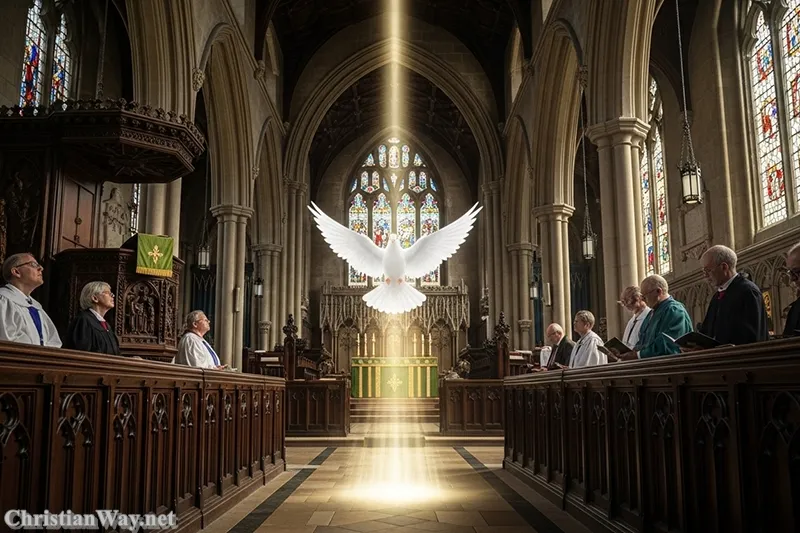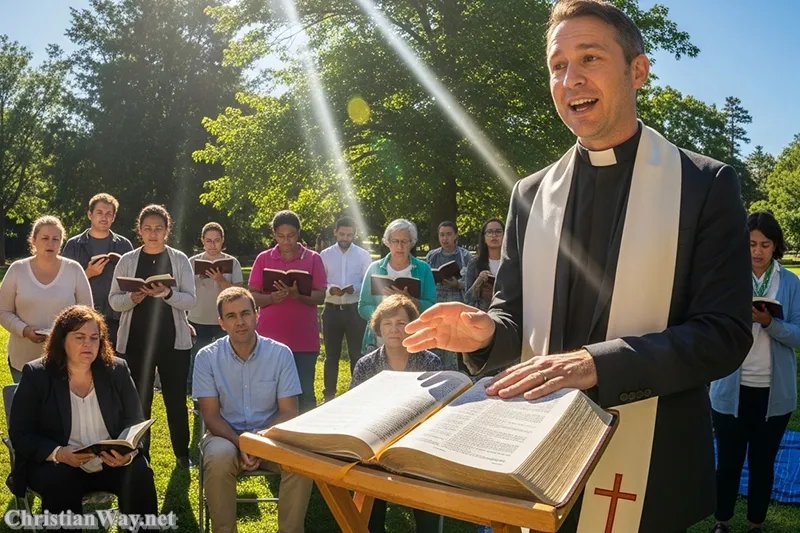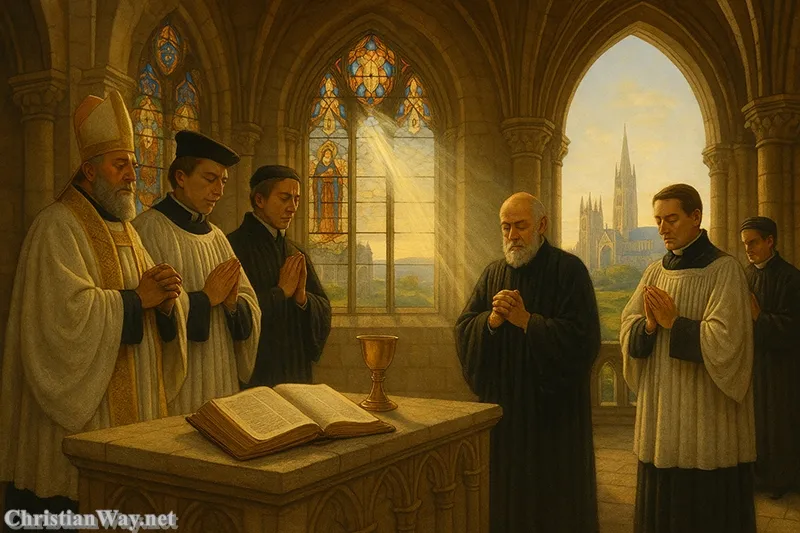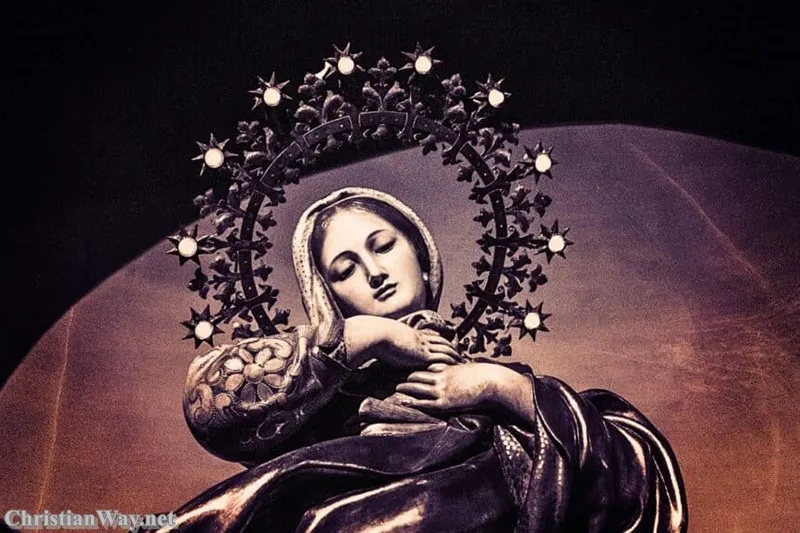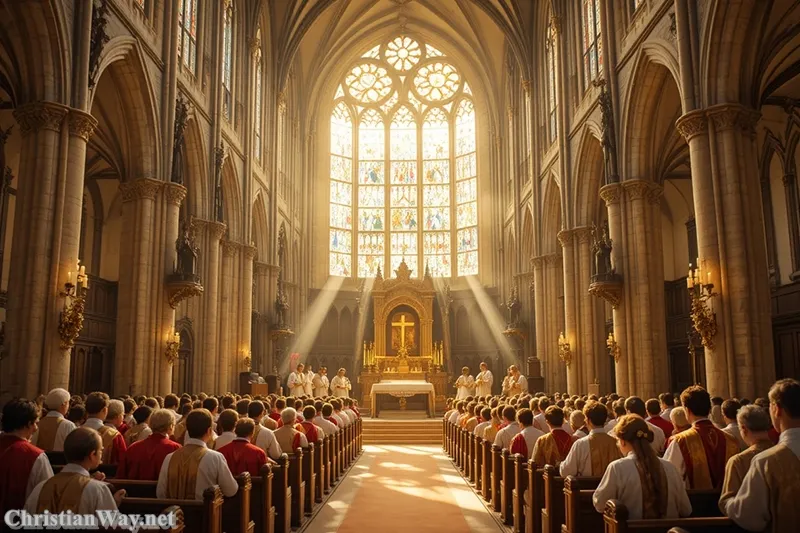Every human heart, at its deepest level, carries a longing for peace — for reconciliation, for meaning, for home. Beneath all our striving and seeking lies this cry of the soul: “Lord, save me.” These are the words of Peter sinking in the waves, but they are also the words of every person who has ever wrestled with sin, failure, or despair. The Christian message — and particularly within the Anglican tradition — begins not with human effort, but with divine mercy. Salvation, in the Anglican understanding, is God’s gracious act of restoring what sin has broken, and grace is the living stream through which this salvation touches the human heart.
In the Anglican way, salvation is not a single moment but a living journey — a relationship with Christ that unfolds through faith, the sacraments, prayer, and the quiet transformation of daily life. It holds together the ancient wisdom of the Catholic and Orthodox Churches with the evangelical conviction of the Reformers, seeing salvation as both gift and growth, both faith and faithfulness.
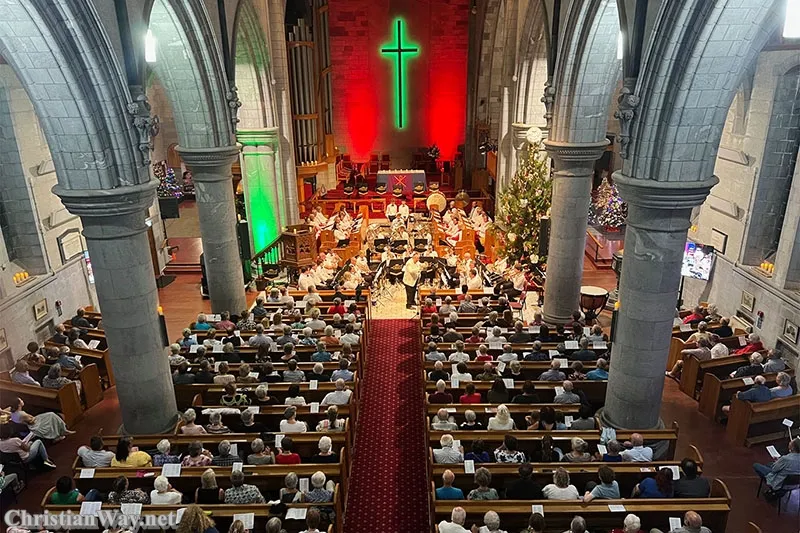
Let us enter this sacred mystery together, reflecting on what Anglicans mean when they speak of salvation and grace, and how these two divine realities meet us in the living Christ.
The Heart of the Anglican Vision: Salvation as Union with Christ
At the center of Anglican belief is the conviction that salvation is not merely an escape from sin’s penalty, but a participation in the life of God through Jesus Christ. The Thirty-Nine Articles of Religion, the historic doctrinal foundation of Anglicanism, begin with the simple truth that humanity, wounded by sin, is restored only through the grace of Christ.
Article XI states:
“We are accounted righteous before God only for the merit of our Lord and Saviour Jesus Christ by faith, and not for our own works or deservings.”
This statement reflects the Protestant emphasis on justification by faith alone (sola fide), yet Anglicanism never reduces salvation to a one-time legal transaction. It is not only about being declared righteous but also about being made righteous — about growing into holiness through the power of grace.
To be “in Christ” is the very essence of salvation. St. Paul writes, “If anyone is in Christ, he is a new creation; the old has passed away; behold, the new has come.” (2 Corinthians 5:17). Anglican theology holds that this new creation begins in baptism, is nourished in the Eucharist, and matures through a lifetime of faith, repentance, and love.
Grace: The Undeserved Love that Transforms
Grace, in Anglican thought, is nothing less than God’s own life given to us. It is not merely divine favor or pardon; it is God Himself acting within us. Grace is what awakens faith, sustains hope, and perfects love.
In the Anglican liturgy, grace is woven through every prayer:
“Almighty God, unto whom all hearts are open, all desires known, and from whom no secrets are hid…”
From the first confession to the final blessing, every act of worship recognizes that all spiritual life flows from grace. We cannot even turn toward God without His help.
Yet this grace does not erase our freedom; it heals it. Grace restores what sin has distorted — the capacity to choose the good, to love truly, and to seek God’s will. In this sense, grace and freedom work together, not in opposition. As St. Augustine wrote, “God’s grace does not destroy free will but heals it.” Anglicanism, standing within that Augustinian stream, holds this balance with beautiful humility.
The Journey of Salvation: Justification, Sanctification, and Glorification
Justification: The Gift of Faith
In Anglican theology, justification is the moment when a sinner is made right with God through faith in Christ. It is entirely God’s work, grounded not in human merit but in divine mercy.
As the Book of Common Prayer puts it:
“We are justified by faith only, is a most wholesome doctrine, and very full of comfort.”
Faith, then, is the open hand that receives God’s grace. It is trust in the finished work of Christ — His death and resurrection. When we believe, we do not create grace; we simply allow it to enter.
But true faith is never idle. It bears fruit in love. As Article XII reminds us:
“Good works… do spring out necessarily of a true and lively faith.”
This prevents the misunderstanding that salvation by faith alone means faith without transformation. In Anglican thought, justification and sanctification are distinct yet inseparable — like two sides of one coin of grace.
Sanctification: The Growth of Grace
If justification is the beginning of salvation, sanctification is its unfolding. It is the lifelong process by which the Holy Spirit makes the believer more like Christ — shaping the heart, renewing the mind, and healing the soul.
This sanctifying grace comes through prayer, Scripture, community, and especially the sacraments. Baptism marks the new birth in Christ; the Eucharist nourishes that new life with His Body and Blood. Confession, confirmation, marriage, ordination, and anointing — each, in its own way, becomes a channel of sanctifying grace, leading the soul deeper into communion with God.
Glorification: The Fulfillment of Grace
Finally, salvation finds its completion in glorification, when the faithful are raised with Christ to eternal life. The Anglican liturgy expresses this hope with deep reverence:
“Grant us, we beseech thee, O Lord, so to eat the flesh of thy dear Son Jesus Christ… that our sinful bodies may be made clean by his Body, and our souls washed through his most precious Blood.”
Salvation, then, is not only about forgiveness but about union — the complete restoration of the human person in the image of God. In the end, grace brings us home.
The Sacramental Life: Where Grace Becomes Tangible
The Anglican tradition is profoundly sacramental. It teaches that God’s grace is not confined to the invisible realm but reaches us through visible signs — water, bread, wine, oil, and the laying on of hands.
In the sacraments, grace becomes embodied. This is not magic, but mystery — the meeting of heaven and earth. The sacraments are acts of Christ Himself, present through the Holy Spirit.
- Baptism is the gateway of salvation, where original sin is washed away and new life begins.
- The Eucharist sustains that life, drawing the faithful into communion with the crucified and risen Lord.
- Confession restores grace when sin has wounded the soul.
Anglicans often speak of the sacraments as “means of grace,” echoing the words of Richard Hooker, one of the great Anglican theologians:
“The end of the sacraments is to be instruments of God’s grace, not only to signify but to bestow that which they signify.”
Thus, salvation is not a distant hope but a present reality — something lived and renewed every time grace is received.
Grace and the Human Will: A Holy Cooperation
Anglicanism resists both extremes — the notion that salvation is entirely God’s work without human participation, and the opposite notion that it depends entirely on our will. Instead, it holds a synergistic vision, in which divine grace and human freedom cooperate.
This cooperation does not mean equality; it means relationship. God acts first, calling and empowering; we respond, trusting and obeying. The Collect for Grace beautifully captures this mystery:
“O Lord, our heavenly Father, Almighty and everlasting God, who hast safely brought us to the beginning of this day; defend us by thy mighty power; and grant that this day we fall into no sin, neither run into any kind of danger.”
In every prayer, the Anglican soul learns to live between dependence and responsibility — trusting in grace yet striving toward holiness.
The Tension and Harmony of Anglican Theology
The beauty of the Anglican view lies in its balance. It stands at the crossroads of Reformation and Catholic continuity, embracing both the evangelical message of grace and the sacramental rhythm of the ancient Church.
- From the Catholic heritage, it keeps the sense of the Church as the visible body through which grace flows.
- From the Reformation, it affirms the centrality of Scripture and the sufficiency of Christ’s atonement.
- From the Orthodox tradition, it inherits the vision of salvation as theosis — becoming partakers of the divine nature (2 Peter 1:4).
This breadth gives Anglican theology a spiritual generosity — one that allows mystery to coexist with reason, faith to stand beside inquiry, and grace to meet the complexity of human life.
Living Salvation: Grace in the Everyday
The Anglican understanding of grace does not belong only to the pulpit or the prayer book; it lives in the quiet rhythm of ordinary days.
Grace meets us when we kneel in confession, when we forgive a friend, when we open Scripture in the early morning light, when we feed the hungry or comfort the lonely. Every act of love becomes a participation in salvation — the grace of God moving through human hearts.
As John Wesley, an Anglican priest and the founder of Methodism, once said:
“There is no holiness but social holiness.”
This means salvation is never private. Grace draws us into communion — with God and with one another. To be saved is to be joined into the Body of Christ, to become a living member of His reconciling love in the world.
The Assurance of Grace
Anglicans speak of assurance not as presumption but as trust. We may never see our salvation fully this side of heaven, but we are invited to rest in God’s mercy.
As one of the most beloved Anglican prayers expresses:
“O Lord, in whose mercy is our hope: hear the prayers of thy servants, and grant us, we beseech thee, the peace which the world cannot give.”
Assurance, then, is not found in feeling but in faith — the quiet confidence that the grace which began its work will bring it to completion (Philippians 1:6).
In the Light of Christ
To speak of salvation and grace is to speak of Jesus Himself. In Him, all the doctrines of faith take on flesh. He is the mercy of God made visible, the grace that stoops down to lift the sinner, the life that conquers death.
The Anglican way teaches us to walk with Christ daily — to trust in His mercy, to live from His grace, and to offer ourselves as instruments of His love. Salvation, in the end, is not merely about reaching heaven; it is about becoming one with the life of Heaven Himself.
Let us then live as people of grace — humble, thankful, and hopeful — trusting that the same God who began His good work in us will bring it to glory.
A Prayer:
Gracious Lord, you call us from darkness into light, from death into life, from sin into grace.
Teach us to rest in your mercy and to walk in your ways.
May our hearts be filled with gratitude for your saving love,
and may your grace abound in us, that we may live to your glory.Through Jesus Christ our Savior. Amen.
— Fr. John Matthew, for Christian Way
